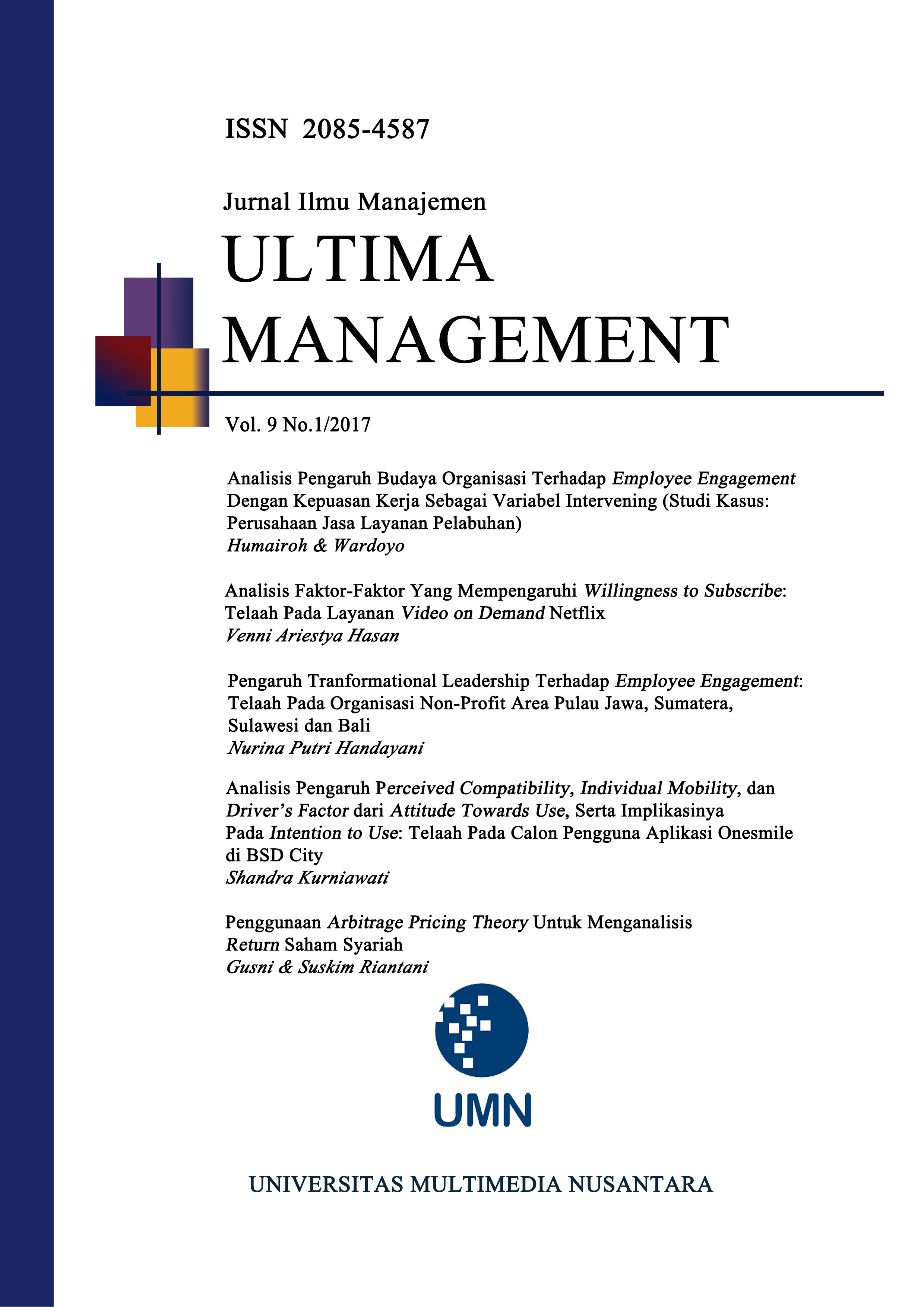Penggunaan Arbitrage Pricing Theory Untuk Menganalisis Return Saham Syariah
DOI:
https://doi.org/10.31937/manajemen.v9i1.598Abstract
Arbitrage Pricing Theory (APT) is one of model that can be used to quantify the risk for investors in order to produce capital gain.There are two empirical models are used in implement the APT: the factor loading model (FLM) and the macro variable model (MVM). Model used in this research was MVM as used by Chen, Roll dan Ross (1986), and Chen, Hsieh dan Jordan (1997). The purpose of this study is to capture the application of APT in Jakarta Islamic Index (JII) using macroeconomic variables (inflation, exchange rate, and interest rate) as the determinants of Syariah stock return and found macro economics variables having powerful effect to the Syariah stock return. To achieve the objectives of this study, a total of 11 listed syariah firms of Jakarta Islamic Index (JII) in Indonesia Stock Exchange were selected by using purposive sampling method from the period of 2009 to 2014. Multiple linear regression has been conducted to capture the application of APT in analized determinants of Syariah stock return. The result shows that only interest rate has effect to the syariah (JII) stock return. Meanwhile inflation and exchange rate have no effect to the syariah stock return. Emperical results clearly indicate that application of APT in justifying returns on Syariah stocks is still weak.
Keywords: Arbitrage Pricing Theory, Exchange Rate, Inflation, Interest Rate, Stock Return
Downloads
Downloads
Published
How to Cite
Issue
Section
License
Authors retain copyright and grant the journal right of first publication with the work simultaneously licensed under a Creative Commons Attribution-ShareAlike International License (CC-BY-SA 4.0) that allows others to share the work with an acknowledgement of the work's authorship and initial publication in this journal.
Authors are able to enter into separate, additional contractual arrangements for the non-exclusive distribution of the journal's published version of the work (e.g., post it to an institutional repository or publish it in a book), with an acknowledgement of its initial publication in this journal.















